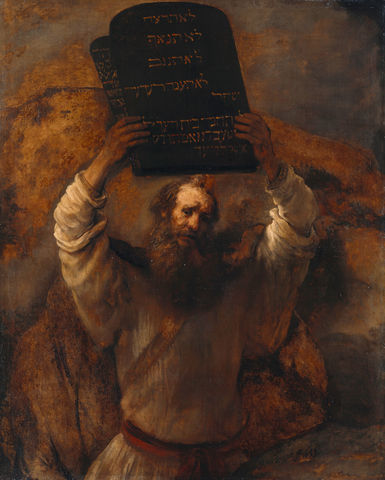This week’s Torah portion, Yitro, is eponymous to Moses’s father-in-law and a prominent Midianite priest, Jethro (Yitro). The initial section of the portion describes the great respect Moses shows him. It also conveys an episode where Jethro criticizes Moses for overworking his capability as a judge and suggests that he distribute his workload among a system of judges. Moses does exactly as his father-in-law says.
Immediately thereafter, the Torah portion cuts to one of the most famous passages in the Torah, the Ten Commandments. Before presenting the commandments, G-d says to the Jewish people:
If you will obey Me faithfully and keep My covenant, you will be My treasured possession among all the peoples. Indeed, all the earth is Mine, but you shall be to Me a kingdom of priests and a holy nation. (Exodus 19:5-6)
According to this, while the entire world and its inhabitants are G-d’s, we, the Jewish people, are placed in a separate category. By living the way G-d wants us to, we become a treasured possession and a holy nation.
Rabbi Abraham Isaac Kook, the first Ashkenazi Chief Rabbi of Pre-State Israel, explains this verse and uses it to clarify the juxtaposition with the portion about Jethro. According to Rabbi Kook, the phrase Mamlechet Kohanim (nation of priests) refers to our aspirations to fix the world (i.e. Tikkun Olam.) It is our job to fulfill the priest-like duties of morally directing the world by being a light unto the nations. However, the verse also instructs us to be a holy nation. This is the flip side of the coin: we also need to focus on ourselves, and to bring the holiness onto our own nation. Thus being a holy people means also tending to our own spiritual growths.
This is also what Jethro teaches us by chastising Moses about his judicial procedure. Of course, Moses, the head of the priestly nation, had a responsibility to fix the world and be the best judge he could be. But Jethro’s message was that Moses was also the leader of a holy nation, a nation that needs to make time to take care of its personal needs as well.
This teaches us that we must learn to correctly balance our responsibilities. As Jews, we are obligated to do what we can to make this world a better place. But we must never forget to take the first step in fixing the world: fixing ourselves.
Shabbat Shalom!
—
This article is part of Ha’Am’s Friday Taste of Torah column. Each week, a different UCLA community member will contribute some words of Jewish wisdom in preparation for Shabbat.

